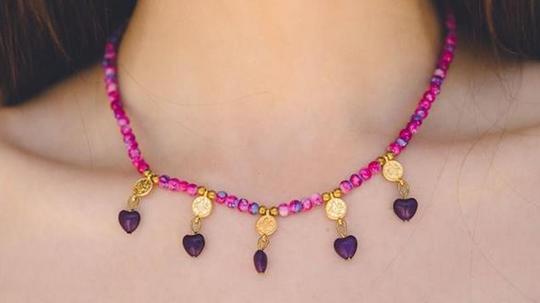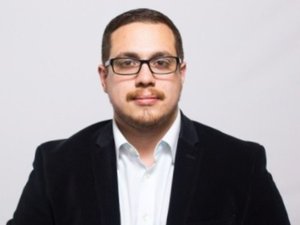
American University sophomore Esra Ozturk has seen first hand how Turkey's tourism decline can affect women in Turkey. In the summers when she goes back to visit family, Ozturk notices that fewer and fewer women are able to make ends meet by selling jewelry and other handmade goods at local markets.
That's why this summer she decided to launch Arzo, a social enterprise startup that aims to sell Turkish women's jewelry internationally.
"Life is really fragile; no day is guaranteed, and I know that's really cheesy," Ozturk said. "But countries like Turkey change every summer, let alone every minute, so I knew it wasn't going to wait for me to get my degree to come back and help these women."
The site features each designers collection individually and items are usually jewelry, such as bracelets or necklaces. Arzo also has "ambassadors," who are people who are native to Turkey, to scope out potential new designers and work with women to sell their lines on the site.
Arzo partners with women in Turkey to sell their jewelry lines online and the company pays its designers double what they would have made for each braceelt or necklace at street markets. For example, if a bracelet is worth 10 Turkish liras, or 3 U.S. dollars, then Arzo offers 20 Turkish liras, or 8 U.S. dollars, to the women.
"We're able to double their wage without it really being a problem for us because $3 is really nothing in the U.S. market," Ozturk said. "And the 10 liras wage isn't even guaranteed, so we're practically doubling a nonexistent wage with the tourism decline."
Right now, Ozturk says her one-person startup works with five different designers who are only in Turkey, but she hopes to expand into other countries and more women as the startup grows.
Ozturk said she's also working on building up their "one-of-a-kind" collections, which is where a designer offers one unique piece for a large sum that goes directly towards emergency funds or recreational expenses—like medical bills or a child's soccer lessons. Right now, those items cost the same as the other collection items. But eventually, Ozturk hopes to see a woman listing a $2,000 item as a way for someone to contribute solely to a medical bill or other large expense.
Ozturk also just joined American University's Entrepreneurship Incubator in November, which she says has already been great because of the number of resources and assistance she gets. Especially because being both a full-time finance major and a startup founder isn't an easy task, she says.
Entrepreneurship isn't for the faint of heart, it's not easy.
"Entrepreneurship isn't for the faint of heart, it's not easy, and they understand that and they understand the variations of struggles that entrepreneurs have from being a woman in entrepreneurship to being both a student and an entrepreneur," she said about the incubator.
In a 30-second pitch video, Ozturk describes her shop as the "Etsy for women affected by poverty." But Ozturk's shop isn't the only outlet for Turkish women to sell their goods online. A few other international marketplaces exist, including Handmade at Amazon.
"What makes us a competitive brand is our commitment to transparent, consistent and honest storytelling on an individual basis. We separate our collections by the women who make them and essentially aim to bring them to life for our customers who will never meet them," Ozturk said. "We share how they’ve struggled and we aim to provide a vision for how we want to help them long-term through our steady, year-round employment."
Moving forward, Ozturk sees her company expanding to provide more community events for women in the countries they work in and to work with more women, overall. But Ozturk also has pretty ambitious goals for her young startup, which should come as no surprise seeing as she started her business at 18 years old.
"Once we're really profitable, I would love to open a school or hospital in regions around the world where people have to walk miles and miles to get to the closest one," she said. "We're pretty much in 2017, and it really blows my mind that people have to carry their children on their back for 10 miles to get to the nearest medicine, to get to the nearest doctor."
Photo courtesy of Arzo




